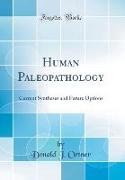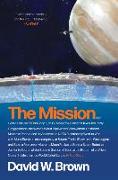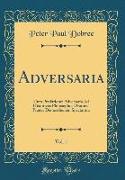Human Paleopathology
BücherAngebote / Angebote:
Excerpt from Human Paleopathology: Current Syntheses and Future OptionsIn 1985 Dr. Pavao Rudan asked one of us (DJO) to organize a symposium on paleopathology for the International Congress of Anthropological and Ethnological Sciences, planned for July 1988 in Zagreb, Yugoslavia. This invitation was intriguing for many reasons but principally because we felt that research in paleopathology had reached a plateau. In our opinion the time had arrived to evaluate research conducted thus far as a basis for suggesting what needed to be done to continue the development of research in the discipline.In 1985 initial invitations for papers for the symposium went out to a large and diverse group of leading scholars in paleopathology. The response was remarkably supportive and definite plans were made.A commensal scholarly/scientific relationship in paleopathology between anthropologically and medically trained researchers has existed for many decades. It clearly was in the interest of good science to have both these disciplines involved in planning the symposium. Arthur C. Aufderhcide, M.D., a medically trained pathologist, became coorganizer of the symposium and coeditor of the proceedings in the early stages of planning. Donald J.Ortner, Ph.D., a physical anthropologist, provided the anthropological perspective in the organization and editorial process.Objectives for the symposium included: (1) review of the current status of research in paleopathology, (2) an effort to explore what can and cannot presently be said about paleopathology, (3) the contributions of paleopathology to our understanding of the history and evolution of disease, (4) an effort to explore the possibility of paleoepidemiology, (5) an attempt to establish criteria that would permit comparative research in paleopathology, (6) an effort to establish the antiquity of modern diseases, (7) an exploration of what paleopathology could contribute in an ideal research context, (8) ways to achieve the above objective, and (9) the directions research in paleopathology could take in the future.There are four major subject areas in paleopathology:(1) soft tissue research generally conducted by medically trained scientists, (2) skeletal tissue research more often conducted by anthropologists, (3) analysis of historical and archeological materials in which medical historians are the major scholars, and (4) biochemical research on trace elements and more recently on Dna and immunoglobulins generally conducted by biochemists or medically trained scientists.The organizers attempted to have a significant representation of papers in each of these general research areas. We Zagreb Palt opalhology Symp. 1988 achieved only partial success. We did get a good group of papers on theory and methodology, another group on skeletal paleopathology, and a fairly substantial cluster of papers on soft-tissue and biochemical research. We were less successful in stimulating papers on the use of archeological and historical materials in research on paleopathology. This partially reflects the inadequate efforts by paleopathologists to create scholarly networks and linkages with the historians of disease and medicine. This clearly is a problem that needs to be corrected.Given the international nature of the Congress we also stressed the need to have scholars from many countries. Clearly the research interests and focus vary somewhat in different nations. It is equally true that writing a scientific paper in a language other than ones native tongue may place colleagues from other than English-speaking countries in a difficult position. We felt, however, that the rewards of international scholarship outweighed the problems inherent in writing in another language.The coeditors have rewritten portions of some of the manuscripts in an attempt to convey more effectively our understanding of what the author was attempting to communicate. The press...
Folgt in ca. 10 Arbeitstagen




